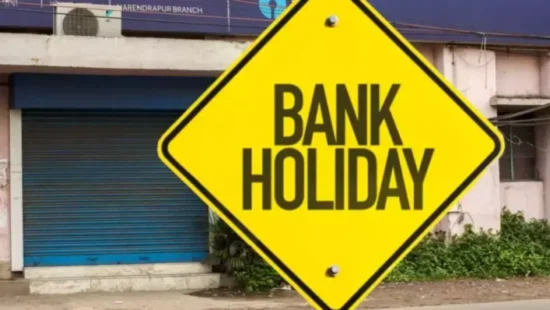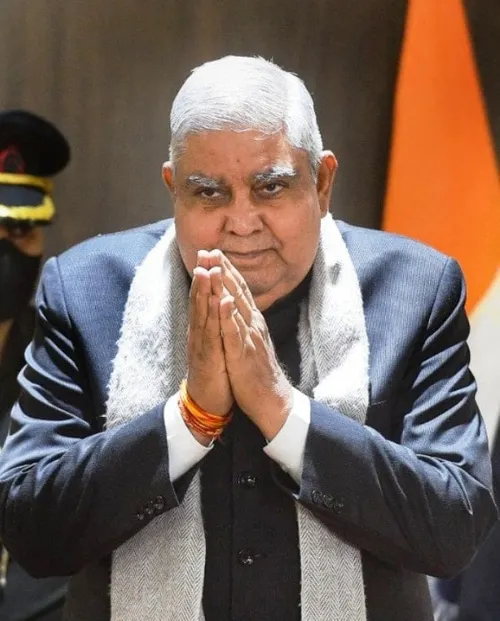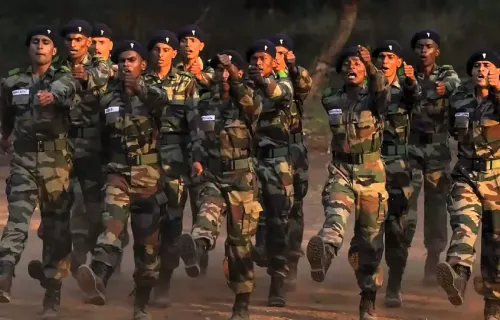Okay, so I’ve been following this whole Bakrid thing pretty closely, not just because it’s a time for amazing food (seriously, the biryani!), but because I’ve lived in India long enough to see how these holidays – both the official ones and the everyday celebrations – weave themselves into the fabric of communities. I’ve spent time in different parts of the country, from bustling cities like Mumbai to smaller towns in Rajasthan, and I’ve noticed that holidays aren’t just about days off; they’re about traditions, family, and a connection to history. And let’s be real, figuring out if the banks are open or closed around a holiday can be a *huge* headache, especially if you’re trying to handle finances. That’s why I wanted to break down everything I’ve gathered – the official holiday announcements, how the banks play a role, and why this whole thing is actually really important. Let’s dive in.
**What *Is* Bakrid Anyway? A Quick History Lesson**
First things first, let’s make sure everyone’s on the same page. Bakrid, also known as Eid al-Adha, is a major Islamic holiday celebrated by Muslims worldwide. It’s a deeply religious occasion commemorating Prophet Ibrahim’s (Abraham) willingness to sacrifice his son as an act of obedience to God. The story is a cornerstone of Islamic faith, representing devotion, sacrifice, and submission to God’s will.
Unlike Eid al-Fitr, which marks the end of Ramadan, Bakrid celebrates the acceptance of Ibrahim’s sacrifice, and the Prophet Ismail’s willingness to follow his father’s example. On this day, Muslims around the world offer prayers, engage in community feasts – seriously, the food is incredible – and give to charity. It’s a time for reflection, repentance, and strengthening bonds with family and friends. It’s a really beautiful tradition, rich in symbolism and deeply rooted in faith. You’ll see a lot of people wearing new clothes, exchanging gifts, and generally just being happy and celebrating together. I’ve been lucky enough to witness it firsthand, and it’s always a vibrant and joyful experience. I remember one particular Eid in Jaipur, Rajasthan, where the streets were completely filled with people, the air thick with the scent of spices and sweets, and everyone was smiling. It wasn’t just a holiday; it was a complete immersion in a culture and tradition.
**The Official Holiday – It’s Usually June**
Okay, so let’s get to the practical stuff. The Indian government officially recognizes Bakrid as a public holiday. However, the exact date shifts each year because it follows the lunar calendar. This year (2024), Bakrid falls on June 19th. It’s *always* worth double-checking the official government notifications to confirm the date before making any plans, though. The Ministry of Finance usually releases an official gazette notification outlining the holiday dates. You can find this on the PIB (Press Information Bureau) website – seriously, click that link (I’ll put it in the resources section at the end) if you want to be totally sure.
The thing about lunar holidays is that they don’t align with the Gregorian calendar (our usual, everyday calendar), so sometimes the date will be a day or two different from what you might expect. It’s completely normal, and it’s part of the beauty of these traditions.
**Bank Holidays: The Bank’s Role (And Why It Matters)**
Now for the money part! This is where it gets tricky. Banks in India, like most financial institutions, typically observe public holidays. However, the exact days on which branches remain open or closed can vary slightly based on the bank’s specific policies and location. Generally speaking, most major banks will be closed on June 19th, the day of Bakrid. This includes banks like State Bank of India (SBI), Punjab National Bank (PNB), ICICI Bank, HDFC Bank, and many others.
However, “most” isn’t “all.” Many branches, particularly in metropolitan areas, might operate on a limited basis, with shorter hours or possibly offering certain services. It’s crucial to contact your specific bank directly to confirm their operational hours for that particular day. Don’t just assume! A quick phone call or a visit to their website will save you a lot of frustration.
Small, regional banks might also have different rules. And don’t forget about ATMs – while ATMs usually continue to function, there might be occasional disruptions due to maintenance or higher-than-usual transaction volumes.
I learned this the hard way a few years ago when I was trying to transfer money for a family event. I assumed all banks would be closed on the holiday, and I ended up having to drive across town to find a branch that was open and willing to help. It was a stressful situation, and it definitely highlighted the importance of proactive planning.
**PIB Fact Checks – Sorting Through the Noise**
You’ll notice a lot of mentions of the PIB (Press Information Bureau) in the various announcements and news articles surrounding Bakrid. The PIB is the official source of information released by the Indian government. They regularly issue fact-checks to address any misinformation or rumors that might circulate around public holidays.
For example, you might see a PIB fact-check specifically debunking claims about the holiday’s origin or significance. They are incredibly thorough and provide reliable information. They’ve been doing a great job of clarifying the holiday’s place in Indian culture and dispelling any misconceptions. You can find their official statements and fact-checks on their website [https://pib.gov.in/](https://pib.gov.in/). Seriously, bookmark this page – it’s your go-to resource for official government information.
**Regional Variations & Festive Traditions**
It’s important to remember that the way Bakrid is celebrated can vary significantly across different regions of India. Let me share a few examples based on my experiences:
* **South India:** In Southern states like Karnataka, Kerala, and Tamil Nadu, Bakrid is often celebrated with elaborate processions and religious gatherings. You’ll often see beautifully decorated floats carrying religious symbols, and the atmosphere is incredibly festive. They also have unique traditions around charitable giving – often assisting those less fortunate.
* **North India:** In states like Uttar Pradesh and Rajasthan, the emphasis is often on community feasts and family gatherings. The food is, naturally, a huge focus! Marwaris, a community within Rajasthan, have some particularly longstanding traditions associated with Bakrid, including elaborate gifting practices.
* **West India:** In Maharashtra and Gujarat, mosques are beautifully decorated, and there’s a strong emphasis on communal prayer and charity. They’ve also got some amazing regional sweets that are integral to the celebrations.
* **East India:** Celebrations in eastern states, like West Bengal and Assam, tend to be more subdued but equally sincere. You’ll see a focus on home-based prayers and family time.
Each region has its own specific customs and rituals, making Bakrid a truly diverse and fascinating part of India’s cultural mosaic. I’ve spent months just wandering around different cities, trying to learn more about these unique local traditions. It’s all about respecting and appreciating the varied ways people choose to celebrate.
**Planning Ahead: Practical Tips for June 19th (And Beyond)**
Okay, let’s talk about making this whole holiday thing as smooth as possible. Here’s a breakdown of what you need to do:
1. **Confirm Bank Hours:** Seriously, *do this*. Call your bank or check their website *well* in advance. Don’t rely on assumptions.
2. **Online Banking:** Make heavy use of online banking! Transfer funds, pay bills, and manage your accounts from the comfort of your home.
3. **Schedule Appointments:** If you need to visit a bank branch for any reason, schedule an appointment in advance. This will save you a huge amount of time and frustration.
4. **ATMs:** Withdraw sufficient cash to cover your needs for the holiday period, as ATMs might be busier than usual.
5. **Travel Planning:** If you’re planning to travel, book your tickets and accommodations well in advance, as travel during holidays can be quite busy.
6. **Local Events:** Many communities host special events and gatherings during Bakrid. Check local listings to see if there’s anything you’d like to attend. I always try to find out about local festivals and events – it’s a wonderful way to immerse yourself in the local culture. One time, I stumbled upon a fantastic Qawwali performance in Lucknow, which was an unforgettable experience.
7. **Respect Local Customs:** If you’re visiting a community that celebrates Bakrid, be mindful of local customs and traditions. Dress modestly, be respectful of religious practices, and ask for permission before taking photos. It’s always appreciated when visitors show an awareness and appreciation for the local culture.
**Beyond the Holiday: The Significance of Bakrid**
I want to go a little deeper than just the practicalities of the holiday. Bakrid is, at its heart, a story of faith, sacrifice, and compassion. The story of Ibrahim’s willingness to sacrifice his son highlights the importance of obedience to God and the values of selflessness and devotion. It’s a powerful reminder that faith doesn’t just mean attending prayers; it also means living a life guided by principles of kindness and generosity.
The tradition of *Qurban* (sacrificing an animal) is a direct reflection of Ibrahim’s act of sacrifice. The meat is distributed among family, friends, neighbors, and the poor – a tangible expression of the holiday’s spirit of charity and community. I’ve seen firsthand how deeply ingrained this tradition is, and how much it contributes to strengthening social bonds within Muslim communities. It’s more than just a religious observance; it’s a way of life.
**Looking Ahead: Understanding and Respect**
As India becomes increasingly diverse, it’s vital that we continue to learn about and respect the traditions and customs of all our communities. Holidays like Bakrid offer a wonderful opportunity to bridge cultural divides and foster greater understanding. It’s less about ‘understanding’ and more about *showing* respect—being aware, asking questions (respectfully), and celebrating the diversity that makes India such a special place.
I believe that education and open communication are key to fostering a truly inclusive society. If you’re curious about any aspect of Indian culture – whether it’s a religious holiday, a festival, or a local custom – don’t hesitate to ask questions. Most people are happy to share their traditions and stories.
**Resources:**
* **PIB (Press Information Bureau):
* **Indian Government Holidays: Useful for checking future holiday dates
* **Bank Websites: (SBI – State Bank of India) and the websites of other major banks.
I hope this post has been helpful! It’s a complex topic, and I wanted to provide as much detail and practical advice as possible. Feel free to leave any questions or comments below – I’d love to hear from you. And happy Bakrid to everyone!
Sourashis Chanda brings readers their unique perspective on Business, Economy, Health and Fitness. With a background in Health and Physical Fitness of 2years, I am dedicated to exploring [what they aim to achieve with their writing, on the sustainable Economy of the country, various pro tips about business, latest goverment news, with some tips in health are and Fitness.







